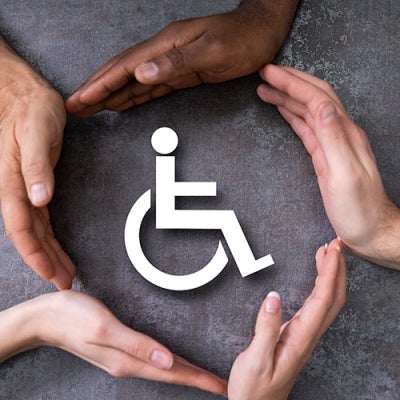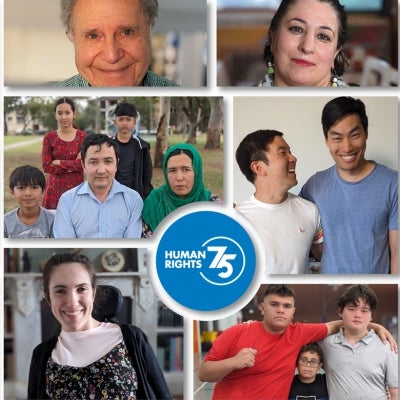Refine results
-
Rights and Freedoms14 December 2012Speech
USING THE LAW TO MAKE A DIFFERENCE Graeme Innes AM (2007)
Scarlett Finney was only six when she saw the brochures for the Hills Grammar School, set in park-like grounds in Sydney's outer suburbs. She indicated her keenness to attend "the school in the bush". Her parents were prepared to pay the fees, and saw the setting and curriculum as providing her with a great education. But the school refused her enrolment due to the… -
Commission – General14 December 2012Speech
Seventh International Conference for National Human Rights Institutions
Torture and various forms of terrorism have been practiced throughout history, though never on the scale we are now confronted with. The first visual records of police interrogation were discovered in a four thousand year old tomb in ancient Egypt. Since the pharaohs there have been many refinements in methods of inducing physical pain and gathering intelligence, most notably during the Spanish… -
Complaint Information Service14 December 2012Publication
Alternative Dispute Resolution in education: case studies in resolving complaints of Disability Discrimination (2002)
The Disability Discrimination Act 1992 (DDA) came into effect in March 1993. The Act makes it unlawful to discriminate against people with a disability in many areas of public life. The purpose of the Act was to 'assist people with disabilities to exercise their rights as Australian citizens'(3) in recognition that 'people with disabilities are entitled to the same rights and same opportunities… -
14 December 2012Book page
Native Title Report 2007: Chapter 6
‘CATSI’ is an acronym for the Commonwealth’s Corporations (Aboriginal and Torres Strait Islander) Act 2006 (Cth), which came into effect on 1 July 2007. The Act ‘primarily provides for the incorporation and regulation of Aboriginal and Torres Strait Islander Corporations’. It replaces the Aboriginal Councils and Associations Act 1976 (Cth) (the ACA Act). -
26 March 2014Book page
Chapter 7: Principle 4: Greater flexibility will strengthen the ADF
Key findings of Review The ADF Review found that flexibility is imperative for many Defence members, and that a lack of flexible work options – be that real or perceived – was acting as a serious impediment to retention. The ADF Review reported that in all three Services: There is an increased propensity for women to leave the ADF at points that coincide with a typical point where personnel … -
Commission – General13 March 2023Opinion piece
A national Human Rights Act needs to be introduced in Australia
Opinion piece by Commission President Emeritus Professor Rosalind Croucher AM, first published in the Canberra Times. -
Disability Rights22 April 2024Webpage

Creating an accessible and inclusive workplace
Learn how to ensure your organisation’s physical workplace, technology, attitudes and values are accessible and inclusive for all employees and visitors. -
Aboriginal and Torres Strait Islander Social Justice13 June 2024Speech
Inaugural CASWA AGM and Statewide Gathering Conference
Working together to build capacity Introduction and acknowledgement Thank you, Aunty Robyn, and Tryse for Welcoming us to your beautiful Country. I pay my respects to the traditional owners of the Noongar Nation of the Wadjak lands on which we meet and gather today, here beside the Derbal Yirigan. I thank your ancestors and elders for their custodianship and stewardship over the generations,… -
International6 February 2024News story

The Universal Declaration of Human Rights: 75 Years On
-
Commission – General1 August 2022Media Release
Commission urges passage of new Bill to strengthen integrity
The Australian Human Rights Commission is urging all federal parliamentarians to support the passage of the new Australian Human Rights Commission Legislation Amendment (Selection and Appointment) Bill 2022. Commission President, Emeritus Professor Rosalind Croucher AM, has welcomed the introduction to Parliament of the new Bill by Attorney-General, the Hon Mark Dreyfus QC MP, last week. The… -
14 December 2012Book page
Getting serious - Our experiences in elevating the representation of women in leadership - A letter from business leaders (2011)
In our companies we see progress from building an understanding of gender diversity and taking the actions described in Phase 1. However, for most of us, these alone do not meet our aspirations. The next transition occurs when we move from an interest in elevating women in leadership, to an understanding that we must actively drive change in the same way that we do for any transformational… -
Commission – General14 December 2012Speech
President speech: ‘How could a Human Rights Act lead to better Government?’
I would like to begin by acknowledging the traditional owners of the land on which we meet, the Ngunnawal peoples, and pay my respect to their elders past and present. -
Rights and Freedoms17 January 2019Speech
2018 Human Rights Awards
14 December 2018 Westin Hotel, Sydney (Check against delivery) [Thank you for your warm welcome to country] Introduction I begin by paying my respects to the Gadigal people of the Eora nation— to their elders, past and present, and to the future generations; and I particularly acknowledge all Indigenous guests joining us here today. On behalf of the Australian Human Rights Commission may I… -
Sex Discrimination14 December 2012Speech
Peeling the inequality onion
This paper considers national and international legislative and other provisions regarding equality for women in the labour market. Australia ranks second to Sweden in terms of pay equity. It is argued that over the last two decades of global shifts to labour market decentralism and deregulation, Australian women have fared relatively well. Three fundamental reasons stand out: -
Sex Discrimination5 March 2021Media Release
Statement on Independent Review into Commonwealth Parliamentary Workplaces
As Australia’s Sex Discrimination Commissioner, I welcome today’s announcement from Senator the Hon Simon Birmingham. I acknowledge the importance and urgency of this Independent Review (Review) into the workplaces of Parliamentarians and their staff, established by the Federal Government, in consultation with the Presiding Officers, the Opposition, minor parties and independents. The… -
14 December 2012Book page
Commission Website: National Inquiry into Children in Immigration Detention
This submission to the Human Rights and Equal Opportunities Commission's Inquiry into Children in Immigration Detention Centres is the result of the work and contributions of many people. -
Sex Discrimination7 February 2020Publication

Community Guide to the Sexual Harassment National Inquiry Report 2020
Read the message from Kate Jenkins urging all employers to join her in creating safe, gender-equal and inclusive workplaces, no matter their industry or size. -
Asylum Seekers and Refugees16 July 2020Media Release
Commission concerned for detainees during COVID
The Australian Human Rights Commission has repeated its call for people in Australian immigration detention facilities who do not pose a security risk to the community to be released to community detention. In March 2020, the Australasian Society for Infectious Diseases (ASID) and the Australian College of Infection Prevention and Control (ACIPC) warned that overcrowded conditions in… -
Asylum Seekers and Refugees26 July 2019Publication
Ms BK, Ms CO and Mr DE on behalf of themselves and their families v Commonwealth of Australia (Department of Home Affairs)
The Australian Human Rights Commission has conducted an inquiry into three complaints arising from the practice of the Australian Government of sending to Nauru families with young children who arrived in Australia seeking asylum. -
Aboriginal and Torres Strait Islander Social Justice28 November 2022Media Release
New report sets the stage for First Nations women to lead response to family and community violence
The report is an outcome of the recent Wiyi Yani U Thangani First Nations Women's Safety Policy Forum which was held virtually in September and which brought together over 150 participants from all around the country, the majority being First Nations women.
